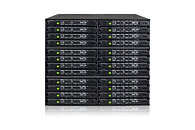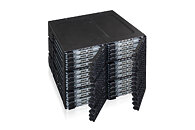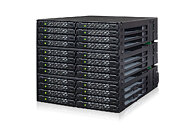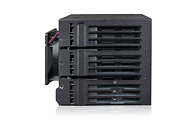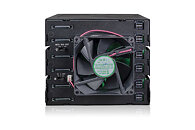
New Kioxia RM7 Series Value SAS SSDs Debut on HPE Servers
Kioxia Corporation, a world leader in memory solutions, today announced that its lineup of KIOXIA RM7 Series Value SAS SSDs are now available in HPE ProLiant Gen11 servers from Hewlett Packard Enterprise (HPE). KIOXIA RM7 Series SSDs are the latest generation of the company's 12 Gb/s Value SAS SSDs, which provide server applications with higher performance, reliability and lower latency than SATA SSDs, delivering higher IOPS/W and IOPS/$.
In addition to being available in ProLiant servers, KIOXIA RM Series Value SAS SSDs are being used in the HPE Spaceborne Computer-2 (SBC-2). As part of the program, KIOXIA SSDs provide robust flash storage in HPE Edgeline and HPE ProLiant servers in a test environment to conduct scientific experiments aboard the International Space Station (ISS).
In addition to being available in ProLiant servers, KIOXIA RM Series Value SAS SSDs are being used in the HPE Spaceborne Computer-2 (SBC-2). As part of the program, KIOXIA SSDs provide robust flash storage in HPE Edgeline and HPE ProLiant servers in a test environment to conduct scientific experiments aboard the International Space Station (ISS).




























































